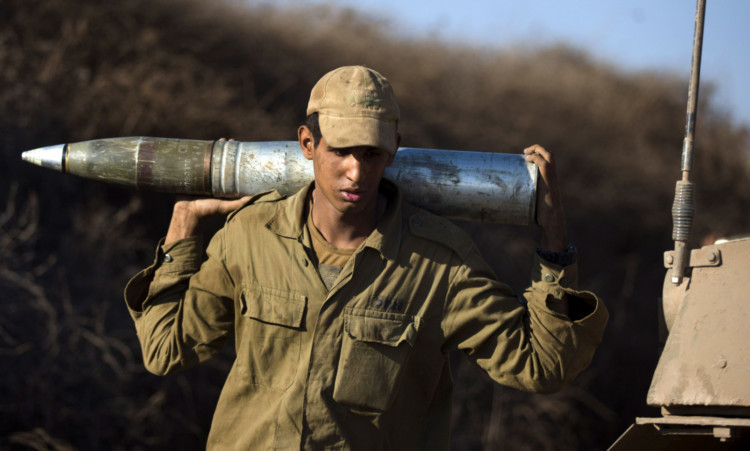Between 1986 and 2010 Charles Bird OBE was a member of HM Diplomatic Service specialising in the Middle East, conflict, post-conflict, terrorism and counter-terrorism issues. Now a Teaching Fellow at the Centre for the Study of Terrorism and Political Violence, St Andrews University, he gives his views on the ongoing Syria crisis.
Over last weekend I spent four days at the Greenbelt Festival in Cheltenham, camping in the same tent I used during the 2003 invasion of Iraq. Mr Cameron and other hawks would have benefited from being there and hearing former combatants, including from the SAS, with experience in Bosnia, Iraq and Afghanistan, as well as Palestinians and Jews, including Israeli ex-military, all talking about the futility of war and military intervention and of the need for peaceful means of settling disputes and conflict.
Lying in my tent I listened to the news and heard the politicians justifying a military response to the use of chemical weapons. Interestingly, those sounding a more cautious note were former military personnel, including General Lord Dannet and Admiral Lord West, who know the realities of war and the dangers of mission creep.
So, here we go again. Limited military intervention in Syria in response to the Assad Government’s use of chemical weapons against its own citizens.
“It defies any code of morality”, says the US Secretary of State, John Kerry. I agree, but so does Mugabe’s misrule in Zimbabwe, what went on in Darfur (anybody remember that?), the Israeli treatment of the Palestinians, Western trade policies that keep the developing world in poverty, and the world banking system that brought on the global economic crisis.
David Cameron says that we cannot stand idly by otherwise others may try and get away with using chemical weapons. I’m confused here. It seems to be the use of chemical weapons the Government objects to, not Assad’s brutal repression of his people. The message we are sending is: “crack on with killing your compatriots, just don’t use chemicals.”
Over 120,000 Syrians have already been killed and thousands more displaced, and we haven’t considered military action up until now. So, on the sliding scale of international morality, what makes the use of chemical weapons worse than, say, executing women and children in cold blood, bombing and shelling civilian areas including schools and hospitals, or using rape as a means of punishment and intimidation?
While we’re at it, what was our response to the Israeli use of white phosphorous shells in Gaza? Phone up the MoD press office and ask them to explain our use of depleted uranium ordinance in Iraq and how it has led to birth defects in newborn babies.
The moral outrage being applied over Syria is selective. There are human rights abuses, including massacres of the innocents, going on around the world all the time, particularly in sub-Saharan Africa, but we turn a blind eye. We are responding to the method of killing and not the inherent brutality of the regime.
And what is the objective? It won’t stop the war in Syria nor will it earn us the gratitude of the extremists. Our interventions in Bosnia, Kosovo and Libya on behalf of the Muslim communities there haven’t given the terrorists pause for thought. Al Qaeda came out of the mujahideen resistance to the Soviet occupation in Afghanistan armed by the US and UK, just as we are now doing with the fractured and divided opposition in Syria. But who will control those weapons when the war is over?
The analysts got it wrong over Iraq and Afghanistan, and there is no reason to suppose that the lessons identified from those failures have been learned. Tony Blair, who does not seem to suffer sleepless nights over the steadily increasing violence and killings in Iraq, advocates intervention in Syria that in itself should make David Cameron stop and think twice.
Once we intervene in Syria, however surgically and briefly, we are taking sides and lining up against Assad’s backers including Russia and Iran. The law of unintended consequences will kick in and we will not be able to control what happens next.
Don’t forget that the killers of Drummer Lee Rigby used our military involvement in Iraq and Afghanistan as a rationale for their actions. And however surgically we act, civilians will die, “collateral damage”.
No doubt the Government will regret our killing of innocent Syrians. The irony being that they will have died in our response to Assad’s killing of his own people. But that’s okay, we will only have blown them up, not gassed them.
Not in my name.
